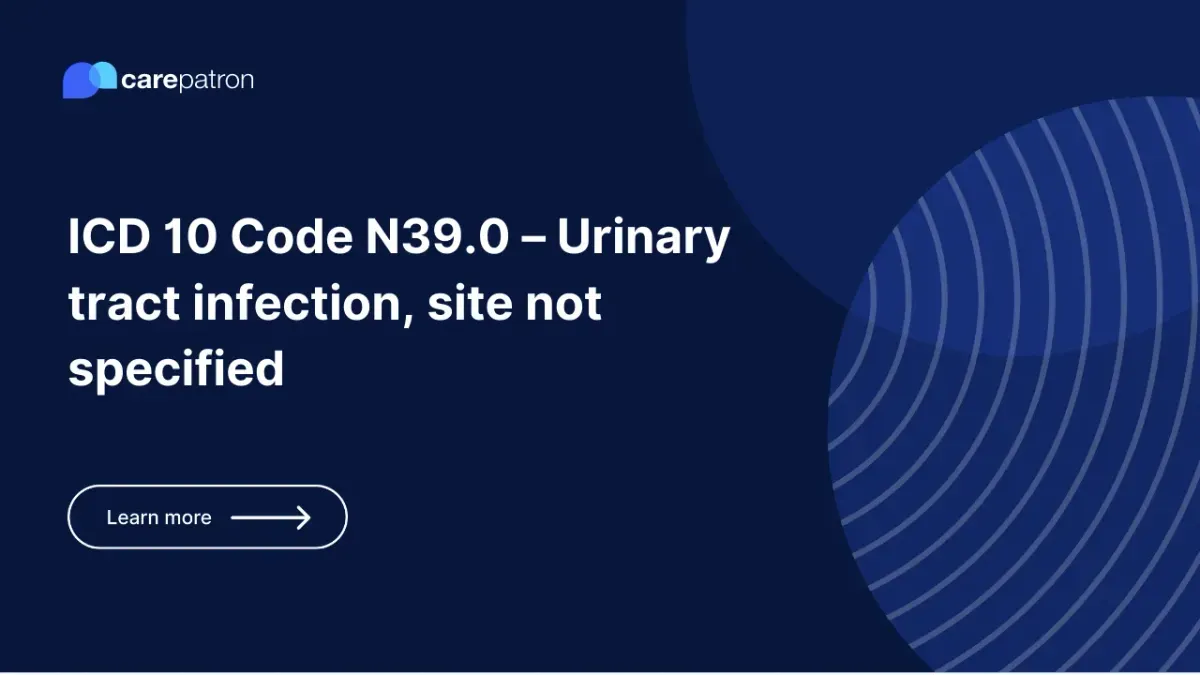
N39.0 – Urinary tract infection, site not specified
Understand how to use the ICD-10-CM code. Learn what this code entails, if it's billable, FAQs, and related ICD-10 codes.
Use Code
Commonly asked questions
Yes, acute cystitis is a urinary tract infection (UTI) that specifically affects the bladder. It is caused primarily by bacteria such as Escherichia coli and presents with symptoms like pain during urination, frequent urination, and lower abdominal discomfort. While all acute cystitis cases are UTIs, not all UTIs are cystitis, as UTIs can affect any part of the urinary tract, including the kidneys and urethra.
ICD-10 code N39.0 is used for urinary tract infections, site not specified. It covers urinary tract infections without further specification of location or type, including bladder infections (cystitis) when the site is not clearly documented. This code is appropriate for a UTI diagnosis, but the exact anatomical site within the urinary tract is not detailed.
There is no specific ICD-10 code that directly denotes "frequent urinary tract infections." Instead, recurrent or frequent UTIs are typically coded using N39.0 for each infection episode, with additional documentation indicating recurrence or chronicity in the medical record. Some providers may use codes for chronic or recurrent cystitis if applicable, but no unique code exists solely for frequency.
EHR and practice management software
Get started for free
*No credit card required
Free
$0/usd
Unlimited clients
Telehealth
1GB of storage
Client portal text
Automated billing and online payments
